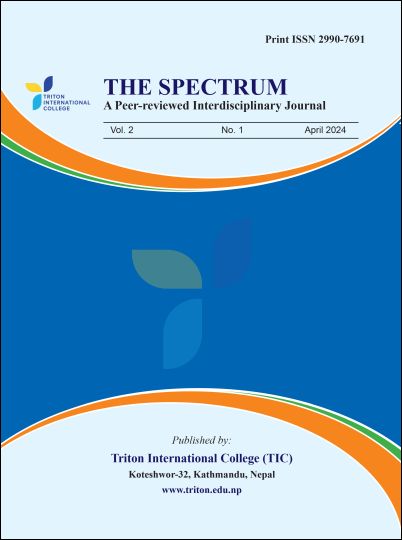Hindu Patriarchal Society and the Rise of Modern Female Characters: A Contextual Reading of Selected Modern Nepali Plays
DOI:
https://doi.org/10.3126/spectrum.v2i1.64766Keywords:
Nepali Hisotry, Patriarchy, Feminism, Modern Nepali PlaysAbstract
This paper explores the way the first-generation modern Nepali playwrights Balkrishna Sama (1903-1981), Bimnidhi Tiwari (1911-973) and Vijay Malla (1925-1999) responded to the existing values of the Hindu patriarchal society by creating female characters. It mainly focuses on Indira from Mukunda Indira (1939) by Sama, Sushila from Sahanshila Sushila (1940) by Tiwari and Urmila, and Pratima from Jiundo Las (1955) by Malla. With the insights taken from Western feminism, mainly the ideas of Judith Butler that gender is ‘scripted’, the paper interprets these female characters by contextualizing the plays in Nepal’s social history. It concludes that Urmila and Pratima represent the pain and suffocation of the first-generation educated female youths of the nation who were yet to recognize the harm its patriarchal values have done to its female members. Indira and Sushila are comparatively docile and do not feel the need to break the grand scripts. Malla by projecting the pain and frustration of female characters who live psychologically complex lives shares the message of the urgency of addressing women’s issues with his audiences.
Downloads
Downloads
Published
How to Cite
Issue
Section
License
Copyright (c) 2024 Shiva Rijal

This work is licensed under a Creative Commons Attribution-NonCommercial 4.0 International License.
This license allows reusers to distribute, remix, adapt, and build upon the material in any medium or format for non-commercial purposes only, and only so long as attribution is given to the creator.




